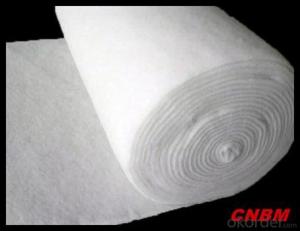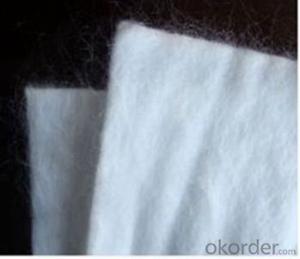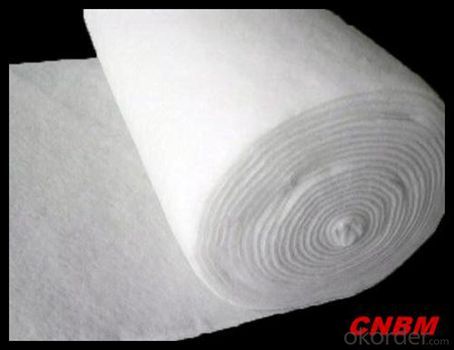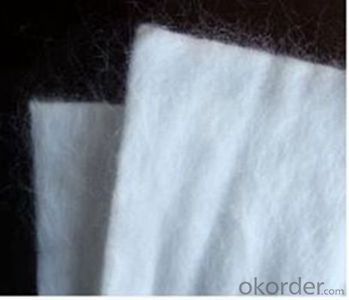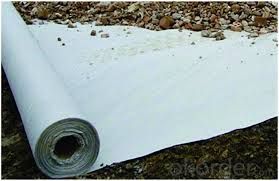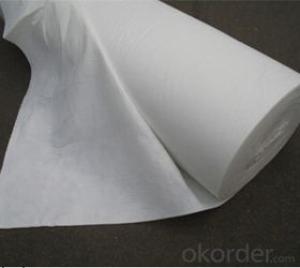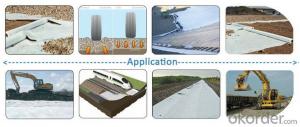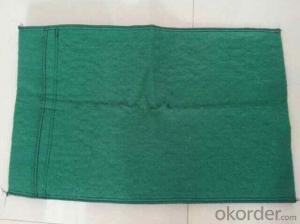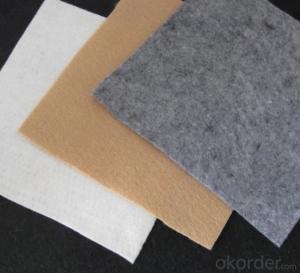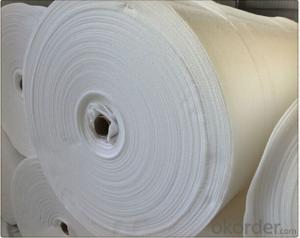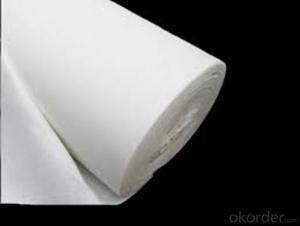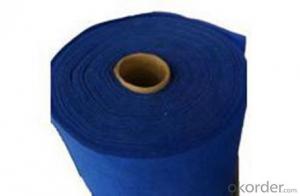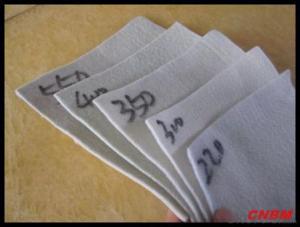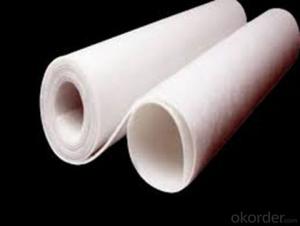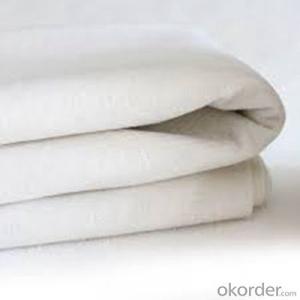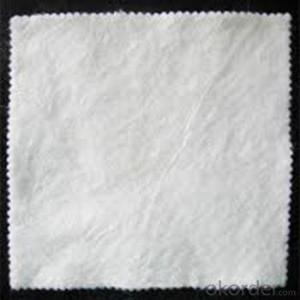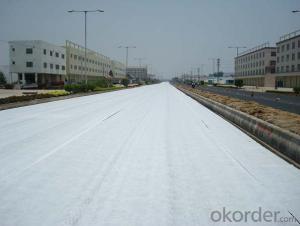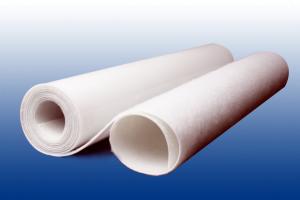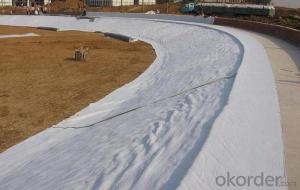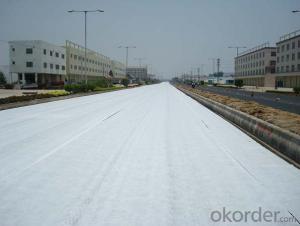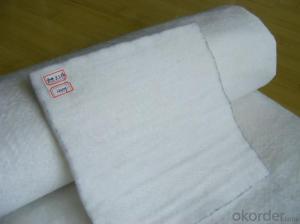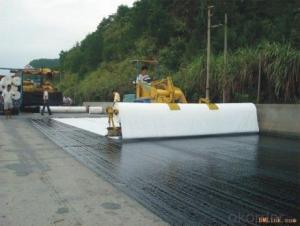Geotextile Ts20 Isolation Non-Woven Geotextile Fabric for Road - Custom Size
- Loading Port:
- China main port
- Payment Terms:
- TT OR LC
- Min Order Qty:
- 5000 m²
- Supply Capability:
- 1000000 m²/month
OKorder Service Pledge
OKorder Financial Service
You Might Also Like
Specification
Non Woven Geotextile Introduction:
Nonwoven geotextiles are manufactured from the extrusion of polypropylene fibres which are then laid down on a manufacturing "bed" and then needle punched to entangle the fibres such that a dimensionally stable product is formed. Some additional thermal treatment is then applied to further improve the strength of the geotextile. Because of this manufacturing process non-woven geotextiles are generally best used in applications of drainage, filtration and protection
3. Non Woven Geotextile Features:
Wide-width rolls
Quality Certified
Proven for use in Main Roads works
Large range to suit the application
4. Non Woven Geotextile Application:
(1) artificial filling foundation movement of ground water.
(2) gravel filter layer surrounding the periphery of the drain pipe drain.
(3) in water conservancy projects wells, relief wells or inclined pipe filter.
(4) for retaining wall backfill reinforcement, or for anchored retaining wall panel.
(5) reinforced flexible pavements, crack repair roads, prevent the reflection cracks of pavement.
(6) in ternal vertical or horizontal drainage, dissipation of pore water pressure in soil.
(7) water impermeable geomembrane dam or embankment in the lower part of the back or the concrete.
(8) the isolation layer between the road ballast and subgrade, isolation layer or between the embankment and soft foundation.
(9) the isolation layer soil between highway, airport, railway ballast and artificial rockfill and soil fabric.
5. Non Woven Geotextile Product Show:
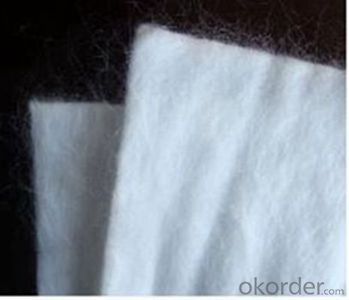
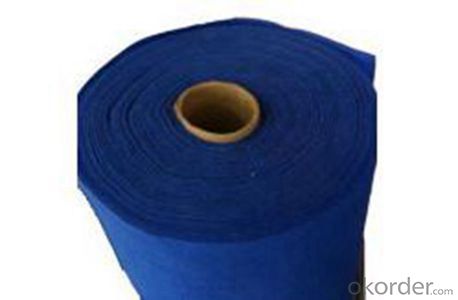
Packaging & Shipping
Packing: PLASTIC FILM INSIDE, AND WOVEN BAG OUTSIDE
Shipping: About 15 days after receipt the deposit
Our Service
Quality assurance
1.On a regular basis or as per your request,we entrust national testing agencies to conduct quality inspections
2. Strictly in accordance with the ISO9001-2008 international quality system standard,we monitor and manage the whole process throughout production,quality testing,and measurement to ensure product quality
3. For quality-related construction delay or substandard construction(except for damage or losses due to customer’s responsibility or irresistible natural disasters),we have refunding,replacement,and repair services.We will respond to customers’ feedbacks on quality issues within 24 hours.
Q: What kind of payments does jenor support?
A: T/T, L/C, Cash are accepted.
Q: Do you charge for the samples?
A: Accordeing to our company policy, the samples are free, we only charge the freight fee. And we will return the freight fee during the next order.
Q: Can you produce according to customers' design?
A: Sure, we are professional manufacturer, OEM and ODM are both welcome.
Q: Do you have other products?
A: Yes, please check the pictures:
pecifications
geotextile fabric
permeability,filtration,easy for construction
ISO and CE certificate
Good quality and competitive price
- Q: How do geotextiles aid in the reduction of pore water pressure?
- Geotextiles aid in the reduction of pore water pressure by providing a barrier that allows water to flow through while preventing the migration of fine particles. This allows for efficient drainage, preventing the build-up of excess pore water pressure within the soil or ground, ultimately reducing the risk of soil liquefaction or instability.
- Q: Application Index of Geotextile Geotextile Expressway
- Too professional, and find a happy manufacturers it
- Q: How do geotextiles help with soil stabilization in geocell applications?
- Geotextiles aid in soil stabilization in geocell applications by providing a barrier between the soil and the geocell structure. This helps to prevent soil erosion, promote proper drainage, and increase the overall strength and stability of the soil.
- Q: How do geotextiles contribute to groundwater recharge?
- Geotextiles can contribute to groundwater recharge by acting as a filtration system, allowing water to pass through while preventing the movement of soil particles. This helps to prevent the clogging of recharge basins or infiltration trenches, ensuring a more efficient recharge of groundwater.
- Q: What are the specifications for geotextiles in civil engineering projects?
- The specifications for geotextiles in civil engineering projects typically include factors such as the material type, weight, strength, permeability, and durability. These specifications ensure that the geotextile selected is suitable for the intended application, whether it's erosion control, filtration, separation, or reinforcement. Additionally, the specifications may also cover aspects like installation requirements, testing methods, and compliance with industry standards to ensure the geotextile performs effectively and meets the project's requirements.
- Q: What are the different geotextile installation techniques for steep slopes?
- There are several geotextile installation techniques that can be used for steep slopes. These include anchoring the geotextile with soil nails or rock bolts, using geotextile wraps or sleeves around soil or rock slopes, and installing geotextile mats or grids on the slope surface. These techniques help to stabilize the slope, prevent erosion, and improve overall slope stability.
- Q: Is there a coinage between the embedded pipeline and the gravel blind ditch? Also on the backfill plant how to set the quota? Also ask the master advise! More
- You can go to the civil online forum to ask questions, there are a little more professional.
- Q: What are the limitations of using geotextiles in high-water flow conditions?
- One limitation of using geotextiles in high-water flow conditions is their susceptibility to clogging. As water flows through the geotextile, it can carry fine particles and debris that may accumulate and clog the material, reducing its effectiveness. Additionally, in extreme flow conditions, the geotextile may not provide sufficient resistance or protection against erosion, leading to potential failure. Therefore, careful consideration of flow rates and proper maintenance are crucial to mitigate these limitations and ensure optimal performance of geotextiles in high-water flow conditions.
- Q: How do geotextiles improve drainage systems?
- Geotextiles improve drainage systems by acting as a filter and separator. They prevent soil particles from clogging the drainage system while allowing water to pass through freely, thereby enhancing the overall drainage efficiency.
Send your message to us
Geotextile Ts20 Isolation Non-Woven Geotextile Fabric for Road - Custom Size
- Loading Port:
- China main port
- Payment Terms:
- TT OR LC
- Min Order Qty:
- 5000 m²
- Supply Capability:
- 1000000 m²/month
OKorder Service Pledge
OKorder Financial Service
Similar products
Hot products
Hot Searches
Related keywords
